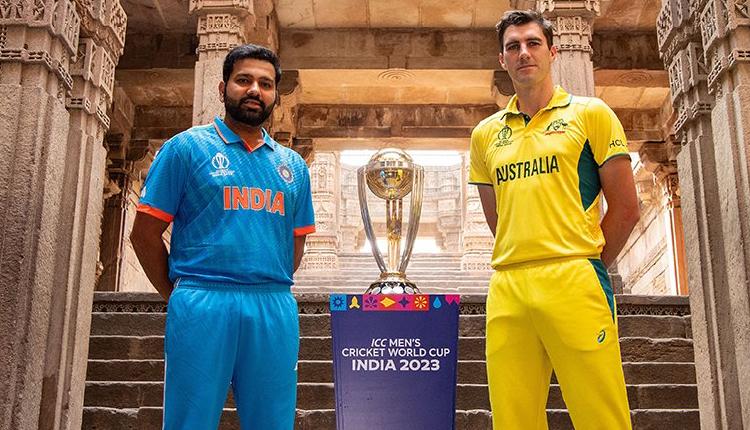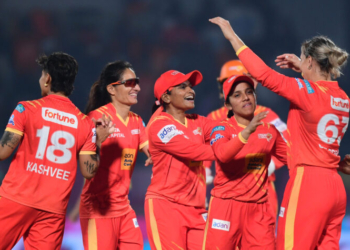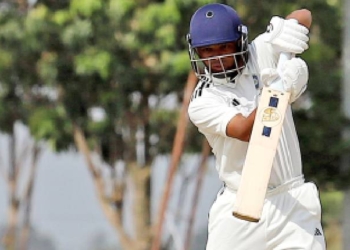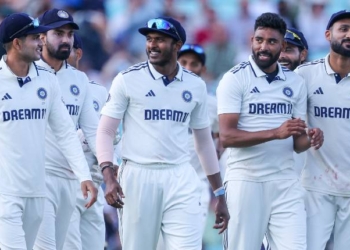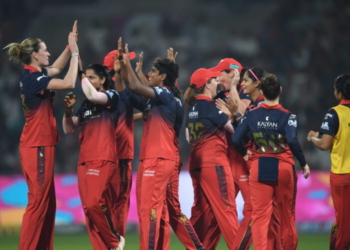Ahmedabad: The 2023 Men’s ODI World Cup finally returns to the Narendra Modi Stadium in Ahmedabad, the venue from where it commenced its journey on October 5. The tournament will culminate with the title clash between two-time winners India and five-time champions Australia.
India, the tournament hosts’ are in prime form, having won ten matches on the trot, including a six-wicket victory over Australia in their tournament opener at Chennai on October 8. Meanwhile, Australia began with two losses before finding their mojo to win eight consecutive games.
India have a win percentage of 58% (won 11 out of 18 games), while for Australia, it stands at 67% (won four out of six games) in ODIs at this venue. The last time India and Australia clashed in a Men’s ODI World Cup final, it was in the 2003 edition of the tournament at Wanderers, Johannesburg in South Africa, where the Men in Yellow won by 125 runs.
The last time India and Australia clashed in a Men’s ODI World Cup knockout game in Ahmedabad, it was in 2011, when the hosts’ won by five wickets in what was then called the Sardar Patel Stadium.
Since then, a lot has changed, including the stadium, now built into the Narendra Modi stadium, now able to host more than one lakh supporters. Coming into Sunday’s clash, there has been an air of intrigue around how the game would pan out, especially the pitch to be the one which was used for India-Pakistan league clash on October 14.
As per the statistics supplied by Cricket-21.com, captains have preferred to bowl first in three of the four World Cup matches here and subsequently, the chasing side has won all three times, without much hiccups.
The only time when a chasing side didn’t win at Ahmedabad was when Australia beat England by 33 runs, with leg-spinner Adam Zampa taking 3-21. In the 2023 Men’s ODI World Cup, the average first innings score has been 251 while the average first innings winning score has been 286.
From a batting perspective, middle-overs phase have been productive in both innings at Ahmedabad. In the first innings, overs 11-40, have seen batters accumulate 615 runs in four innings, while in the second essay, it becomes 599 runs.
In terms of overs 1-10, second innings looks more productive, with 225 runs scored, as compared to 189 runs. Though only 121 runs (in two innings) have been made in second innings, as compared to 199 runs in four innings of the first essay, the former has a better run-rate of 7.7, as compared to 6.2 in the latter.
Moreover, in terms of venue run-rates, second innings yield better than first innings. Second innings sees run rates of 6.4, 5.6 and 7.7 in overs 1-10, 11-40 and 41-50 phases respectively, compared to 4.7, 5.1, and 6.2 respectively for same periods in the first innings.
In four matches of 2023 Men’s ODI World Cup here, pacers have taken 35 wickets as compared to 22 scalps picked by spinners. Fast-bowlers also have the better bowling strike-rate of 32.7, as compared to 44.8 for spinners. But in terms of being economical, spinners have an economy rate of 4.9, compared to 6 for fast-bowlers.
In terms of the right lengths to bowl at the venue, the 6-8m good length and 8-10m back of the length marks have been productive for right-arm fast-bowlers, yielding them 15 and 10 wickets respectively at a respective economy rate of 4.8 and 6.2. For spinners, the 4-6m good length and 6m+ short length are fruitful, giving them 14 and six wickets respectively at an economy rate of 4.2 and 5.8 respectively.
In their journey to reach the World Cup final, both India and Australia have been at their optimum best in all departments. Now is the time for both teams to get that one day to be crowned the new Men’s ODI World Cup champions in a packed stadium in Ahmedabad.
(IANS)




